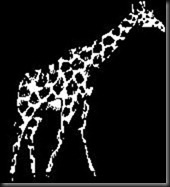Will Knott brought this topic to the LBC – and do me the favor of checking out what the other members have to say … after you read my take, of course.
I have lingered quite close to death once in my life, when at the age of five, I was hospitalized with what was believed (apparently) to be a systemic infection. It turned out to be mononucleosis, something that doctors would not really suspect a five year-old of having, so that is not totally surprising. The bad news, though, was that the nursing shift made a grievous error in my care and double-dosed me with penicillin for two weeks! This played havoc with my system, as you can guess, and it was taken over by opportunistic fungal growth which almost did me in.
You are probably thinking that I am going to tell you of something that caused me to suddenly take a TURN for the better, or some such, but that is not so. Instead, it is the conclusion of my hospital stay that is the mystery.
At the end of the stay, they took out my tonsils. Even in the 50’s, this was not the most daring of surgery. The nasty part was that the anesthetic was ether, and anyone who has ever come out of ether induced sleep can attest that the effects after are quite awful with headache and severe nausea. But, that isn’t the point of the story, either.
No, the story is about what I “saw” or dreamed of during the surgery. There was a current, an electric stream, that was so strong that it poured in a beam of almost unimaginable force. The beam streamed from left to right, I remember that quite vividly, and was horizontal.
A massive man entered the picture, a man of immense strength and power.

Somehow, he grabbed that raging torrent and struggled with it mightily. Slowly, ever so slowly, he bent it so that it gradually assumed a flow back over his shoulder. His effort in doing this was Herculean, but his will was iron!
He turned that stream! He succeeded. And, somehow, I knew at the age of five that what he did was very important!
Why would a child have such a preposterous and involved vision? I’ve often wondered what it meant at any level.
When I awakened, they gave me ice cream. And I turned green ...









